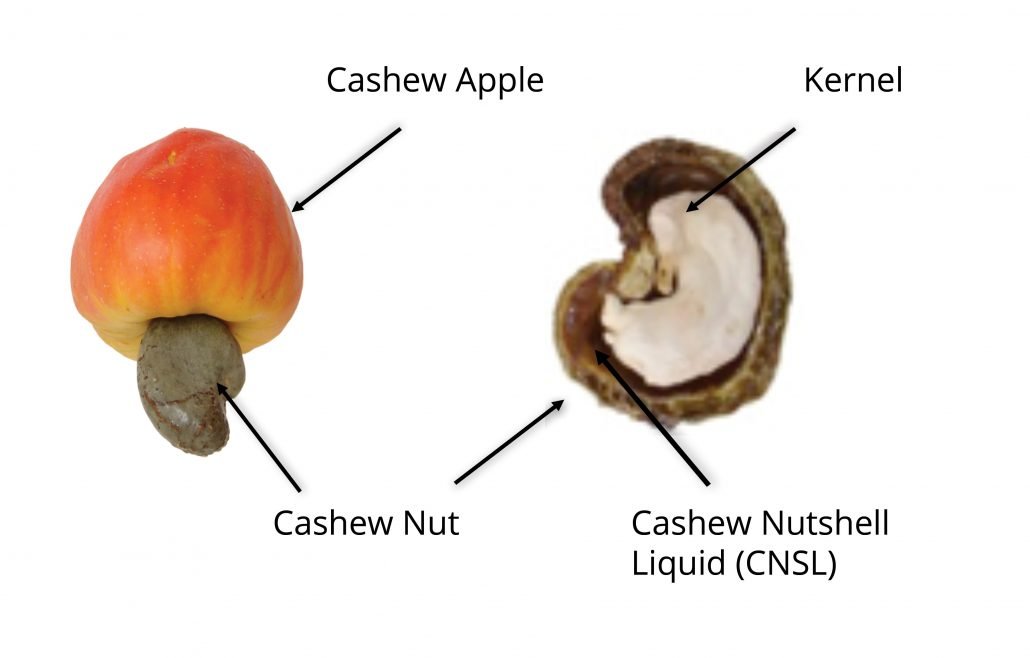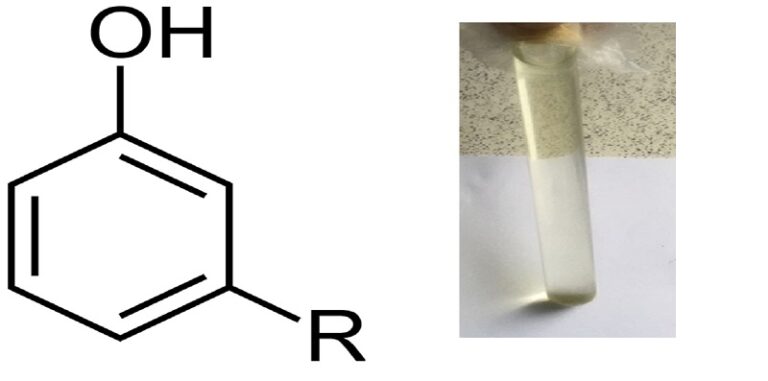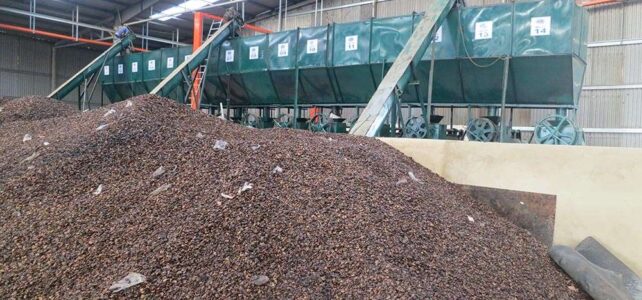Cardolite products are based on Cashew Shell Liquid (CNSL), a series of natural, non-food and renewable biomaterials every year. CNSL is a reddish brown viscous liquid extracted from the soft honeycomb structure inside the cashew nut shell.
Cardolite products are based on Cashew Shell Liquid (CNSL), a series of natural, non-food and renewable biomaterials every year. CNSL is a reddish brown viscous liquid extracted from the soft honeycomb structure inside the cashew nut shell.

cashew nut shell liquid
In summary, this liquid contains mainly anacardic acid and smaller amounts of cardol and its methyl derivatives. CNSL can be decarboxylated and distilled to give high purity cardanol, an alkylphenolic compound very popular in the chemical industry. Distillation residues can be used to produce elastomeric friction granules and binders for the automotive brake lining industry.
Cardolite’s proprietary technology enables the production of a wide range of cardanols of varying purity and colour. The recently developed Ultra LITE technology allows the production of Gardner 1 color cardanols with good stability over time.
Cardanol is used as a primary building block for Cardolite epoxy curing agents, diluents and modifiers as well as polyol and diol resins. This natural alkylphenolic material has an aromatic ring that provides a chemical and heat resistant backbone while the hydroxyl group provides strong adhesion and good reactivity for fast curing and at low temperatures. A long fatty side chain provides excellent water and moisture resistance, good flexibility, low viscosity, extended pot life and excellent corrosion resistance. Our cardanol product line, NX-202x Series, has earned the USDA Certified Bio-Based Product label.
With a growing desire in the chemical industry to replace petroleum-based feedstocks and remove hazardous substances, the end uses of cardanol continue to expand as a diluent and intermediate for various derivatives and applications
The particular cardanol, NX-2026, gave favorable results over the petroleum-based grade in a recent life cycle analysis (LCA) conducted by the nova Institute in Germany. LCA is a process to assess and quantify the environmental burdens associated with a product, process or activity by identifying and quantifying the energy and materials used and the waste released into the environment. in their life cycle.
An end-to-end scenario (planting cashews to factory gates) shows that using NX-2026 in place of nonyl phenol significantly reduces the potential for CO2 uptake by cashews. NX-2026 also shows a lower abiotic depletion of fossil fuels than nonyl phenol.









